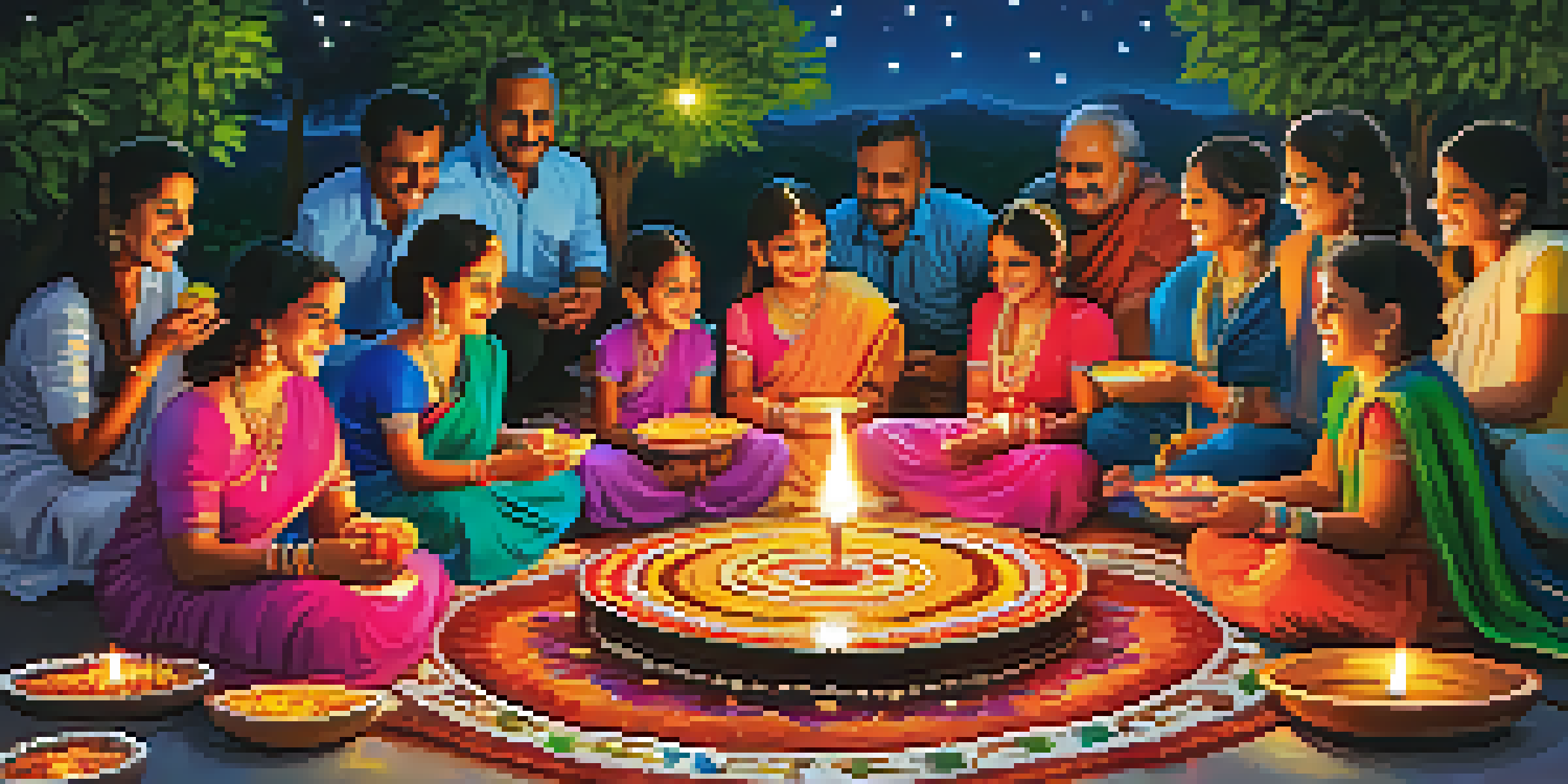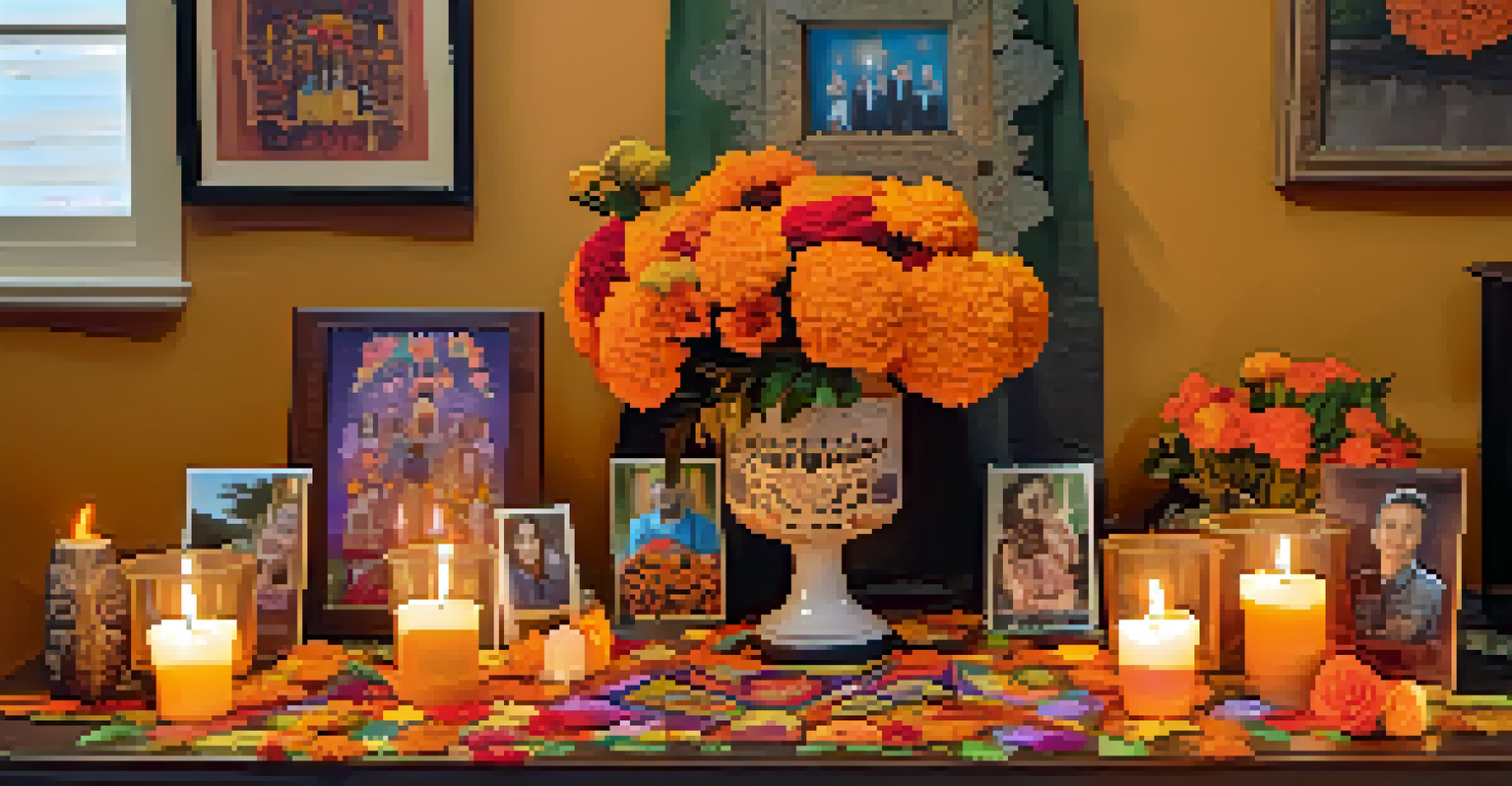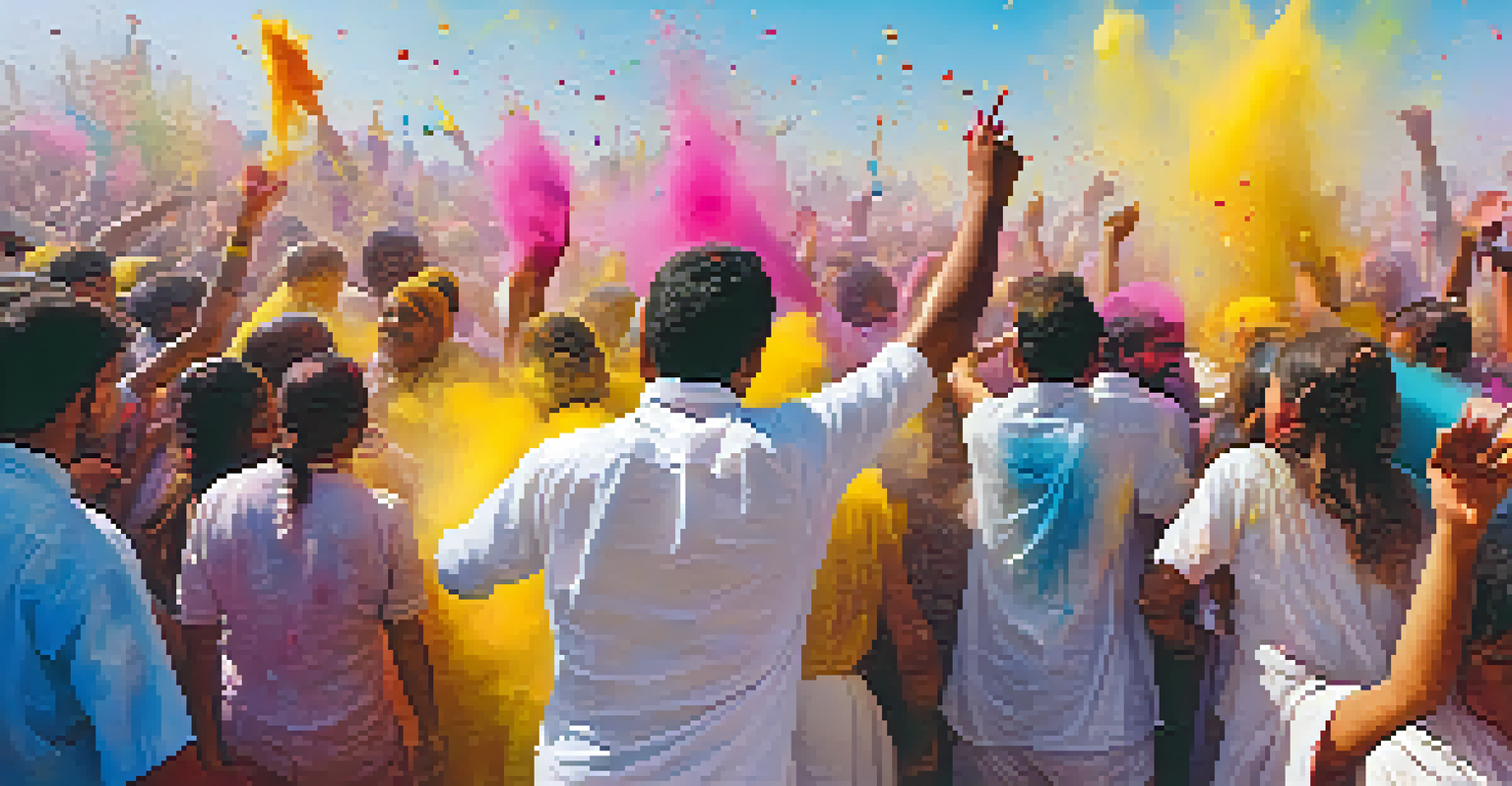The Role of Festivals in Merging Spirituality and Culture

Understanding Festivals: More Than Just Celebrations
Festivals are vibrant gatherings that often transcend mere entertainment, serving as a vital intersection of spirituality and culture. They mark significant moments in a community’s calendar, often rooted in ancient traditions and spiritual beliefs. For many, these events are an opportunity to connect with their heritage, share stories, and celebrate the divine.
Festivals are a celebration of life, a way to connect with our roots and each other.
Take, for instance, Diwali, the Festival of Lights celebrated by millions. This festival not only symbolizes the victory of light over darkness but also fosters a sense of belonging among participants. It showcases how cultural practices interweave with spiritual significance, reinforcing the values of community and gratitude.
In essence, festivals serve as a reminder of our shared humanity and the diverse ways we celebrate life’s milestones. They create a space where spirituality and culture can coexist, allowing individuals to find deeper meaning in their traditions.
Cultural Expression Through Spiritual Practices
Each festival is imbued with rich cultural expressions that reflect the spirituality of the community celebrating it. From traditional dances and music to elaborate rituals, these elements bring spiritual beliefs to life. For example, during the Day of the Dead in Mexico, families honor their deceased loved ones through vibrant altars and lively celebrations, merging joy with remembrance.

These cultural expressions not only showcase artistic talent but also reinforce communal bonds. They provide a platform for storytelling, where history and spirituality intertwine, fostering a deeper understanding of one’s roots. The colors, sounds, and flavors of a festival can evoke emotions that connect participants to their spiritual beliefs.
Festivals Unite Spirituality and Culture
Festivals serve as vibrant intersections of spiritual beliefs and cultural practices, allowing communities to connect with their heritage and each other.
Thus, festivals become a canvas for cultural expression, allowing individuals to experience spirituality in a tangible and joyous manner. The blending of these elements creates a unique atmosphere that resonates with both the heart and soul.
Rituals and Their Significance in Festivals
Rituals play a crucial role in festivals, providing structure and meaning to the celebration. These actions, which can vary widely from one culture to another, often symbolize deeper spiritual truths. For instance, the ritual of fasting during Ramadan is not just a physical act but a spiritual journey that deepens one’s connection with faith.
The essence of a festival lies in the collective joy and shared experiences it brings to a community.
By participating in rituals, individuals engage with their spirituality in a communal setting, reinforcing shared beliefs and values. This can create a sense of belonging and continuity across generations. When families come together to perform these rituals, they pass down traditions that are laden with meaning and history.
Ultimately, rituals help transform festivals into sacred experiences, blending the spiritual with the cultural. They remind participants of their place within a larger narrative, fostering a sense of purpose and connection.
Festivals as a Means of Community Building
At their core, festivals are about community. They bring people together, fostering relationships that span beyond mere acquaintances. Whether it’s a local harvest festival or a global event like the Olympics, these gatherings cultivate a sense of unity and shared identity among participants.
Communities often use festivals to celebrate their unique cultural heritage while reinforcing spiritual values. This collective celebration can strengthen social bonds, as individuals come together to share their stories, cuisine, and customs. The feeling of togetherness during these events can be incredibly uplifting and healing.
Rituals Foster Community Bonds
Participating in rituals during festivals strengthens communal ties and fosters a sense of belonging across generations.
In this way, festivals serve as a powerful reminder of the importance of community in both spiritual and cultural contexts. They create a space where diversity is celebrated, and individuals can find solace in their shared experiences.
Global Festivals: A Melting Pot of Spirituality and Culture
As globalization continues to shape our world, festivals have become a melting pot of cultural and spiritual practices. Events like the Carnival in Brazil or the Holi festival in India attract participants from all walks of life, blending traditions and beliefs in vibrant displays of unity. These gatherings create opportunities for cross-cultural dialogue and understanding.
When people from different backgrounds come together for a festival, they share their unique perspectives, enriching the experience for everyone involved. This exchange of ideas and customs fosters greater appreciation for diversity and highlights the interconnectedness of our spiritual beliefs.
By embracing global festivals, we not only celebrate our own cultures but also learn from one another. This merging of traditions exemplifies how spirituality and culture can transcend boundaries, creating a more inclusive and harmonious world.
The Impact of Technology on Festivals
In today’s digital age, technology plays a pivotal role in shaping the way we experience festivals. Live-streaming events, social media sharing, and virtual gatherings have made it possible for people to participate in celebrations from anywhere in the world. This accessibility can deepen one’s connection to spiritual and cultural traditions, even if they cannot attend in person.
However, while technology offers new opportunities, it also presents challenges in maintaining the authenticity of festivals. The essence of a celebration often lies in the tangible connections made during in-person gatherings. Striking a balance between embracing technology and preserving tradition is essential for the future of festivals.
Technology Shapes Modern Celebrations
In the digital age, technology enhances festival experiences by making them more accessible, though it also challenges the preservation of their authenticity.
Ultimately, technology has the potential to enhance our understanding and appreciation of festivals. By leveraging digital tools, we can keep cultural and spiritual practices alive, ensuring they evolve while remaining rooted in their original significance.
The Future of Festivals: Evolving Traditions
As societies evolve, so too do the festivals that reflect their values and beliefs. The future of festivals lies in their ability to adapt while honoring their roots. New generations are taking the helm, often infusing modern elements into traditional practices, making them more relevant and engaging for today’s audiences.
This evolution can be seen in festivals that embrace sustainability, inclusivity, and social justice. For instance, many music festivals now prioritize eco-friendly practices, reflecting a growing awareness of environmental spirituality. Such changes not only resonate with contemporary values but also attract a diverse array of participants.

In this dynamic landscape, festivals will continue to serve as vital expressions of both spirituality and culture. Their ability to adapt ensures they remain meaningful and impactful, bridging the gap between the past and the future as we celebrate our shared humanity.